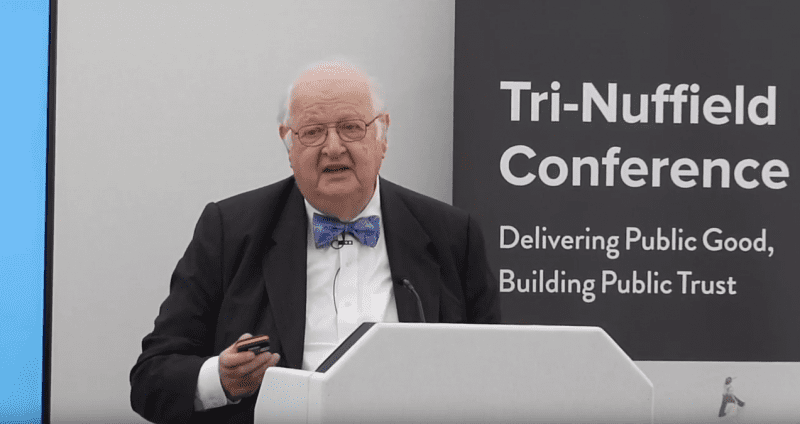
04/06/19
2 min read
Trends in morbidity and mortality in the US population are also a threat to the UK, although we are better protected against them in the short-term. This was the theme of Sir Angus Deaton’s keynote lecture at our recent Tri-Nuffield Conference, Delivering Public Good, Building Public Trust.
Convened in partnership with the Nuffield Trust and Nuffield College, the conference sought to stimulate fresh, cross-disciplinary thinking on the major challenges for UK social policy in the 2020s and to identify the most fruitful avenues for research.
An American tragedy
Sir Angus Deaton gave a detailed presentation of his work done with Professor Anne Case, showing that in the US, successive cohorts of people without a university degree are experiencing increasing rates of suicide, chronic pain, mental distress, low wages, and mistrust in the democratic process. Sir Angus highlighted the role of the ‘opioid catastrophe’ and falling rates of well-paid and meaningful employment as underlying factors.
Are these trends a threat to the UK?
On the question of whether these trends were also a threat to the UK, Sir Angus outlined both the positives and negatives. On one hand, the UK has cheaper healthcare, a better safety net, better control of opioids (for now), and a less pronounced educational divide.
On the other hand, we have seen stagnant median wages for more than a decade, rising share of profits and falling share of labour, a plateau in life expectancy, and increased globalisation and political disenfranchisement. So-called ‘deaths of despair’ – from suicide and substance misuse – are also increasing in the UK, albeit not to the same extent as the US.
A multi-disciplinary approach
Sir Angus concluded by calling for more multi-disciplinary research, something that is not currently rewarded in academia. Economics, he says, has much to learn from sociology, philosophy, history and demography.
This multi-disciplinary approach is a key component of the IFS Deaton Review, which is Chaired by Sir Angus and funded by the Nuffield Foundation. The Review is the most ambitious study of inequality yet attempted and will aim to understand inequality not just of income, but of health, wealth, political participation, and opportunity; and not just between rich and poor but by gender, ethnicity, geography, age and education.
Setting the agenda for UK social policy research in the 2020s






















































